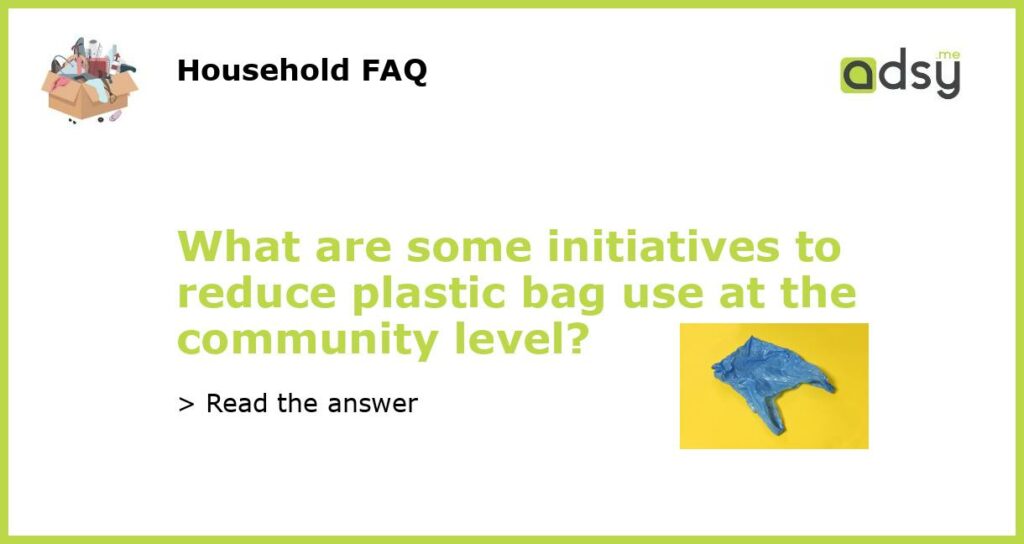Implementing a Plastic Bag Ban
One of the most effective initiatives to reduce plastic bag use at the community level is to implement a plastic bag ban. This means prohibiting the distribution and sale of single-use plastic bags within a community. Many cities and towns around the world have already implemented plastic bag bans, including cities in the United States, Europe, and Australia.
By banning plastic bags, communities are encouraging residents to use reusable bags instead. This not only reduces the amount of plastic waste that ends up in landfills and oceans, but it also promotes sustainable shopping practices. Reusable bags are not only more environmentally friendly, but they are also more durable and can be used multiple times, reducing the need for single-use plastic bags.
Implementing a Plastic Bag Tax
Another initiative that has been successful in reducing plastic bag use is implementing a plastic bag tax. This involves placing a small fee on each plastic bag used by consumers, encouraging them to bring their own reusable bags. The revenue generated from the tax can be used to fund environmental initiatives or education campaigns to promote reusable bags.
Several countries, including Ireland and Denmark, have successfully reduced plastic bag use through the implementation of a plastic bag tax. Studies have shown that a plastic bag tax can significantly decrease the consumption of plastic bags, leading to a reduction in plastic waste and environmental pollution.
Promoting Reusable Bags and Alternative Packaging
Community initiatives can also focus on promoting the use of reusable bags and alternative packaging options. This can include distributing free or discounted reusable bags to residents, partnering with local businesses to encourage the use of reusable bags, or organizing educational campaigns to raise awareness about the environmental impact of plastic bag use.
In addition to reusable bags, communities can also explore alternative packaging options. For example, encouraging businesses to use biodegradable or compostable packaging materials instead of single-use plastic bags can significantly reduce plastic waste. This can be achieved through partnerships with local businesses, providing incentives for the adoption of sustainable packaging, or offering resources and training to help businesses transition to more sustainable practices.
Establishing Community Recycling Programs
Another important initiative to reduce plastic bag use at the community level is to establish community recycling programs. These programs can provide residents with convenient locations to properly dispose of plastic bags and other types of plastic waste.
Community recycling programs can include designated drop-off locations for plastic bag recycling, collaboration with local recycling facilities to ensure proper processing of plastic bags, and educational campaigns to educate residents on the importance of plastic bag recycling. By providing these resources and education, communities can encourage residents to take responsibility for their plastic waste and reduce their reliance on single-use plastic bags.
Supporting Local Legislation and Advocacy
Lastly, communities can support local legislation and advocacy efforts aimed at reducing plastic bag use. This can involve working with local government officials to propose and promote regulations to ban or tax plastic bags, as well as supporting organizations and campaigns that advocate for sustainable packaging and waste management practices.
By joining forces with like-minded individuals and organizations, communities can amplify their efforts to reduce plastic bag use and advocate for more sustainable practices at the local level. This can include participating in community clean-up events, attending town hall meetings to voice concerns about plastic waste, or supporting local businesses and organizations that prioritize sustainability.






